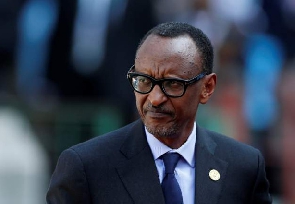The cabinet of Rwanda has approved visa waiver fees for a broad category of visitors visiting the East African country.
The citizens of member States of African Union, the Commonwealth and Francophonie countries will not be required to get an entry visa into Rwanda to foster the country’s openness policy, minutes from Saturday’s cabinet meeting revealed.
In June, Rwanda will host the 26th meeting of the heads of government of the Commonwealth of Nations, also known as CHOGM 2020.
The country’s visa-openness now makes it one of the most open countries on the continent.
Rwanda announced plans to abolish visa fees for citizens of over 90 countries to boost the Eastern African country’s economy in January. The policy was announced by President Paul Kagame Wednesday at the International School for Government at King’s College in London, while speaking about Rwanda’s transformation journey, reports The New Times.
Scrapping visa fees for 53 Commonwealth citizens as well as 54 Francophonie member states across the world will open up Rwanda to massive investments.
Experts who spoke to The New Times observe that the development will among other things increase the chances of Rwanda hosting global summits due to ease of access.
Kagame was in the UK for the UK-Africa Summit. The summit is the UK’s attempt to secure a strong trade relationship even as the country backs out of the European Union (EU).
The UK’s international development secretary, Alok Sharma said: “Africa’s substantial investment potential is clear, with many African countries outstripping global economic growth in recent decades.”
“The timing is good. Britain is looking to re-imagine its global trade and investment arrangements. And later this year, the world’s largest new free trade area will become operational in Africa, covering nearly the entire continent,” Kagame said.
Kagame also touched on the operationalization of the African Continental Free Trade Area (AfCFTA) which takes effect July this year. According to him, the agreement signals to investors Africa is ready to deepen regional integration.
“African Continental Free Trade Area demonstrates to investors that there is solid political will in Africa for a deeper regional integration agenda. We have good reason to take advantage of these developments and work more closely together,” he said.
The 18th Ordinary Session of the Assembly of Heads of State and Government of the African Union, held in Addis Ababa, Ethiopia in January 2012, adopted a decision to establish a Continental Free Trade Area (CFTA) by an indicative date of 2017.
The Summit also endorsed the Action Plan on Boosting Intra-Africa Trade (BIAT) which identifies seven clusters: trade policy, trade facilitation, productive capacity, trade-related infrastructure, trade finance, trade information, and factor market integration.
The CFTA will bring together 54 African countries with a combined population of more than one billion people and a combined gross domestic product of more than $3.4 trillion.
Africa News of Wednesday, 11 March 2020
Source: face2faceafrica.com













